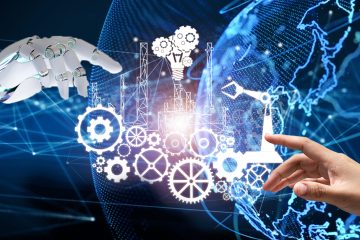Artificial intelligence (AI) has become a technological reality for businesses and organizations across industries. Even if its benefits may not be always easy to quantify, AI has proven itself capable of improving process efficiency, reducing human errors and labor, and extracting insights from big data.
AI adoption among large companies has increased by 47% compared to 2018, according to the latest Artificial Intelligence Index report. AI has made its way into many enterprise applications, including customer relationship management software, recruiting services, workforce productivity, and resource planning tools.
According to the same report, global private AI investment exceeded $70 billion last year, highlighting the interest in AI software and startups. At the same time, AI and related subjects have attracted more university students around the world and made AI experts some of the most sought-after professionals in developed countries.
On a smaller scale, AI has made it into many people’s lives in one form or another, even if its presence is not always recognized. To better understand the state of AI, let’s take a closer look at the role AI plays in business and in many people’s lives even as we speak.
Summary of the State of AI
- AI-enhanced technologies and solutions are now more widely available than before across industries, though they are not necessarily cheap to implement.
- Voice-based assistants are at the forefront of the AI adoption process in industries as diverse as IT, automotive, and retail.
- Smaller-scale AI as seen in chatbots enables smaller brands to save resources and improve customer satisfaction.
- An increasing number of AI-enhanced tools are available as software-as-a-service (SaaS).
- Mobile devices and apps have become one of the easiest ways to deploy AI technologies across industries, whether it’s in the form of voice assistants, smart monitoring and control, personalized shopping experiences, or warehouse management apps.
- AI is present in intelligent applications, neuronal networks, AI platforms as a service, and AI cloud services.
- Emerging AI technologies include augmented intelligence, which seeks to enhance human intelligence and edge AI, where AI algorithms are processed locally without the need for an internet connection (such as some forms of face recognition).
- According to the Artificial Intelligence Index Report, AI computing power keeps doubling every 3.4 months.
AI Implementation Examples
Intelligent machines that can replicate human behavior may not yet be widely available, but subsets of AI such as machine learning (ML) and deep learning (DL) have found a wide range of applications in both enterprise and everyday settings. Here are some of the best-known implementations of AI.
Automated customer support for online stores
In most cases, this translates to AI-powered assistants that can instantly answer basic questions, find products, or communicate the status of an order.
Personalized shopping experience including recommendations
Big brands use AI to process huge amounts of data about their customers in order to come up with product recommendations, custom content, and more.
Forecasts and predictions for financial services
Powerful financial analysis tools use machine learning to analyze more data faster and provide accurate predictions.
AI curation and recommendations
AI plays a part in what you see in your feed on networks like Facebook. AI curation takes into account your social media preferences and habits, as well as other dynamic data.
Face detection and security systems
AI has been implemented in advanced security and surveillance systems to both prevent threats and identify suspects.
Antivirus threat detection
Antivirus software from top providers uses AI in addition to other detection methods to identify new threats and contain them before they become a problem.
More effective warehouse management systems
AI can help warehouse staff find products faster by optimizing routes and the picking process.
Safety improvements in the automotive industry
AI gives cars predictive safety powers and allows for self-driving modes. In 2019, AI in the automotive industry has seen a larger application than before, most notably on Tesla cars.
Internet of Things
Smart appliances such as temperature sensors use AI to better understand your behavior and react to your actions and commands. Also, smart homes are now being controlled by increasingly intelligent smart voice assistants.
AI has also raised ethical questions that brands that adopt it on a large scale now have to consider more carefully than before. AI governance, or the process of creating policies that address the negative implications of AI, will likely continue to attract attention until the capabilities of AI and their impact on human lives are fully defined.
Whether you’re already using AI implementations or not, one thing’s clear—ignoring AI in the present or in coming years is quite impossible if you use a mobile device, browse your Facebook news feed, or shop online.



0 Comments